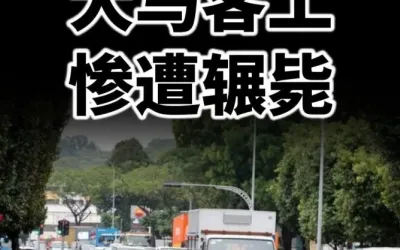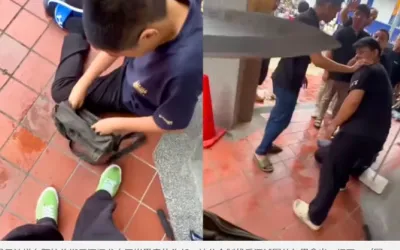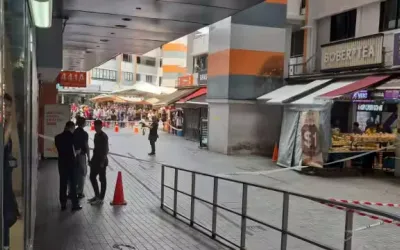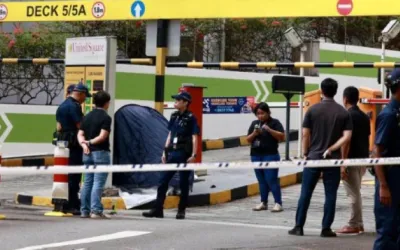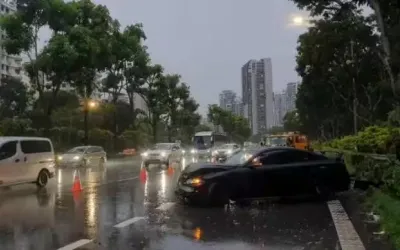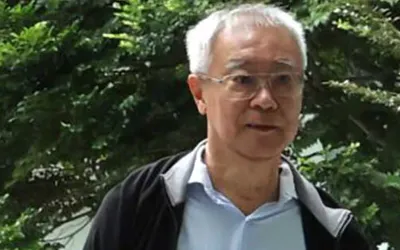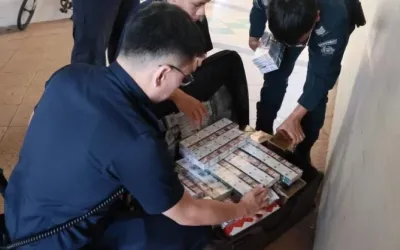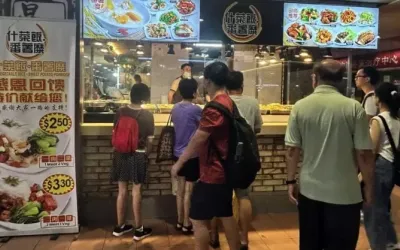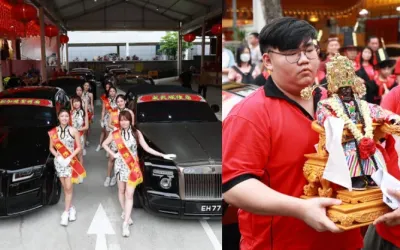我給你們舉個例子—2020 年大選,正值COVID-19 期間。當 COVID-19 出現時,我們距離選舉還有一年左右的時間。但當大流行開始變得嚴重時,我決定在可行的情況下儘快舉行選舉。有些人說,「不,儘可能推遲」。甚至宣布緊急狀態,推遲到 COVID-19 之後。我說:「不,你現在就去」。斷路器是沒辦法的事--我們必須解決眼前的問題。處理完之後,我說:「讓我們提前舉行一次大選,選出一個擁有全新授權的新團隊。我們將面臨許多挑戰。我們將不得不做出許多艱難的決定。人們將經歷許多混亂和困難。我們必須集中精力對抗COVID-19,如果我每天都想制定新的COVID-19政策,卻不得不問自己,我應該在選舉前還是選舉後這樣做,那我們就無法做到這一點。新加坡人會死的,真的。因此,我們大選了,我們得到了很好的授權,此後,我們集中精力作為一個國家與 COVID-19 作鬥爭,我很欣慰地說,我們並沒有失敗。這是因為我們能夠團結起來,將我們的團隊凝聚在一起,能夠集中精力解決問題。」
2020年大選取得了一個很好的結果,但不幸的是,我們失去了盛港選區,在這個過程中,我們失去了黃志明兄弟作為候選人。這是工運的一個挫折。但幸運的是,黃志明兄弟有毅力和魄力繼續擔任秘書長,幸運的是工運繼續支持他。工運還支持團隊中的其他領導人--人民行動黨國會議員:王志豪(Heng Chee How)、陳國明(Desmond Tan)、鄭德源(Patrick Tay)、朱倍慶(Desmond Choo),以及堅定的工會領導人,如Thana姐妹、Mary姐妹,以及職總中央委員會和工會中的許多其他人。
因此,在大流行病期間,工運領導有方,可以成為政府的好夥伴,並發揮了關鍵作用。它挽救了工作崗位,推動了技能提升。它管理著自僱人士收入補貼計劃(SIRS)。因此,它不僅幫助工會會員或可談判的雇員,還幫助新加坡的工人,包括自僱人士。此外,它還將目光投向了大流行病之外,成立了企業培訓委員會(CTCs),以支持企業提高技能。結果證明,這是一個非常成功的項目。因此,在今年的預算中,我們又投入了2 億新元的支持,因為你們的錢已經用完了。但我們很高興,因為它超額完成了你們的計劃,是一個很好的項目,所以我們會支持它,做得更多。
因此,全國職工總會能夠幫助我們從 COVID-19 中走出來並強勁反彈。這就是三方合作的含義——政府、工會、僱主攜手合作。事實上,這就是人民行動黨和全國職工總會之間的共生關係所能為工人和新加坡帶來的好處。這也是黃循財總理和他的4G團隊致力於加強三方合作和共生夥伴關係的原因。我期待你們在下屆大選中支持這個團隊。尤其是支持團隊中的工運領袖和人民行動黨工會顧問。
結束語
今晚的演講或許令人不安,但我認為我有責任來到這裡,直接、坦率、誠實地與你們交談,與你們分享事情的真相。
這是我在從政之初學到的一課,當時我剛剛成為部長,我們正在應對經濟衰退,1985年的嚴重經濟危機,我們不得不削減公積金,僱主公積金削減了15個百分點。你們有些上了年紀的人會記得那是一個多麼令人震驚和艱難的決定。但我們能夠堅持下來,因為當時工會會員對他們的領導人充滿信心。王鼎昌兄弟是當時的秘書長。政府部長們--王鼎昌本人、我、吳作棟、時任副部長的林文興--我們親自前往工會,與工會領袖交談,與工人交談,一次又一次,讓他們了解利害關係,讓他們支持能讓我們擺脫困境的政策。幸運的是,他們相信了我們。他們信任我們。他們接受了建議,接受了治療,新加坡的恢復速度比預期的要快得多。因此,每當我遇到這樣的危機或這樣的情況時,我的第一反應就是:「讓我們談談,了解這是怎麼回事。我們能一起做些什麼?如何擺脫困境,而不是越陷越深」。因此,我認為我們可以滿懷信心地投入戰鬥。我們有資源,我們有經驗--我們已經準備好了。我們曾經做到過,我們將向世界證明,我們可以再次做到。
即將到來的大選至關重要。這是一個變化了的世界。我們有一個新的團隊掌權,我們將有新的決心應對挑戰,並變得更加強大。
黃循財總理首次帶領人民行動黨參加選舉,尋求自己的使命,帶領新加坡向前邁進--渡過危機,實施計劃,開創未來。
我希望新加坡人了解正在發生什麼,什麼事關重大,以及我們必須做些什麼來共同確保我們的未來。謝謝大家。
以下內容為英文原稿:
Transcript of speech by Senior Minister Lee Hsien Loong at the dialogue with NTUC and union leaders on 14 April 2025.
Good evening brothers and sisters. Thank you for the very, very warm welcome. I did not come to make an announcement; I came to do a dialogue with everybody. I am very glad to do this. We hold these regularly, particularly after Budgets. But tonight, I would like to talk more about what is happening in the world; and what we need to do as a country.
I will start with the Budget. Budget 2025 was the record budget for Singapore. Biggest ever – $143 billion – and it was a comprehensive budget which delivered support where it was most needed. Support for the cost of living, which is very much on people’s minds – CDC vouchers for households, U-Save and S&CC rebates, LifeSG credits for children, and this year being SG60 year, SG60 Vouchers for every adult, $600, or if you have enough white hair, $800. For workers we have enhancements to skills upgrading. SkillsFuture Level-Up Programme, more comprehensive training allowance, and also allowances to help you defray your expenses, even for people on part-time programmes. We have support for businesses and SMEs. Cost relief through grants and rebates, support for the companies to upskill their workforces. And we invested in our growth engines – AI, infrastructure, and in clean energy, for example Climate Vouchers to buy more energy efficient air-conditioners, washing machines, ovens, what have you. So, it was a comprehensive and robust package.
And it was generous for a reason. Because we could see clouds on the horizon. Because we could see that storms were brewing and we wanted to make sure that we were prepared for unexpected things which would happen. We knew what was going on in the Middle East. We could see US-China tensions. We could see the uncertainties in Europe. And most recently of course we could all see what was happening with the new administration in the US under President Trump. Many new policies, fundamental re-thinking of approaches, and we were not sure what new surprises we would expect. And therefore, we prepared a budget, a package, which would be enough. If something goes not quite right, everybody is looked after.
Liberation Day
So, when Liberation Day came, not on the 1st of May, but on the 2nd of April, that was not a complete surprise to us. Because Trump had signalled very clearly, and over many years, that he wanted to do tariffs and he wanted to equalise America’s trade deficit. He believed in tariffs since he was a young man. He had said during this campaign repeatedly that when he comes in, he was going to put tariffs on everybody; it was the most beautiful word in the vocabulary. The first time he was President, eight, nine years ago, he had imposed some tariffs. So, that he was going to do something was not a surprise. But even then, what happened on Liberation Day was more drastic than expected. In fact, it is the biggest shock that the global trading system has ever faced. The stock markets plunged. I think even the bond markets moved in America – interest rates went up, bond prices came down.
For now, there is a 90-day postponement on what Trump calls the "reciprocal tariffs". He has put in some exclusions for Chinese smartphones, laptops, and chips. And so for the time-being, there is a reprieve. But tariffs on all the countries – 10% – that is non-negotiable, and that is in force and happened already. So postponing 90 days sounds like you have got 90 days of reprieve. But actually, during this 90 days, it is not just the tariffs which have been postponed. Because with this thing hanging over you, waiting, not sure if it is going to come or not come, everything else goes into limbo. Because what happens after 90 days? We know that what the US administration wants, is to eliminate the US trade deficit. They want to rebuild manufacturing in the US, bring the jobs back. And they want to do this not only across the board, to balance with the whole world, but they want to do this country-by-country – with China, Japan, Canada, Mexico, Vietnam. Not with Singapore. Why? Because America has a surplus with Singapore - that is all right. If America has a deficit with Singapore, we will be there, high on the list too. It is the way they are thinking about their problems.
So this is the fundamental belief, a very deep motivation. Trump believes it, his team believes it. And these are goals which are going to be very difficult to achieve. So, we must expect him to continue to pursue this objective, and when he makes moves but the moves have not delivered results, I think the conclusion will not be to leave off, but to continue to do more moves and to take further strong measures. So we can expect to see further steps taken by the Americans over time. And that is going to have very major consequences for many countries, including Singapore. So we are here now, steps have been taken, steps yet to come, more uncertainties to come. We are not where we were before this new Administration took office, or before the 2nd of April. The world is in a new phase.
US-China
One of the biggest problems in trade and arising from this tariff package is the damage to US-China relations. America has postponed the tariffs against other countries but has not postponed against China. The tariff war between America and China has already begun. First round, America put 20% on, China responded with selected products. Then America came back again. Went back and forth with China. Now US levies on China are 145% and the Chinese – you do this to me, I do this to you – The Chinese do to US imports, US sales to China, 125%. So, it has reached the level where the number does not matter anymore. It can be 100%, it can be 200%, it can be 300%. How much business is going to be done? Probably, almost none, because it is impossible.
